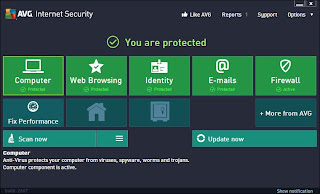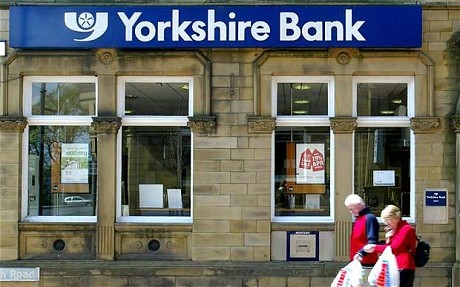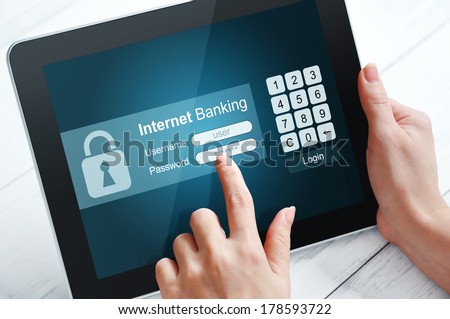Internet Banking Patch
You are fully protected against third party fraud when banking with HSBC Internet Banking. You will not suffer any loss if money is taken from your account without your permission provided you have not acted fraudulently or negligently.
HSBC is committed to protecting the security of our HSBC Internet Banking customers. HSBC will issue a Security Device to HSBC Internet Banking customers who need to access services under Security Device Logon mode.
The Security Device has been selected by HSBC as the technology that best meets our customers need for flexibility and portability, and our business volume requirements. The Security Device meets the Hong Kong Monetary Authority s requirements for Two-Factor Authentication, while providing the following benefits to our customers:
The Security Device itself generates the Security Code. As there is no dependency on a third party for security code generation, our customers do not need to rely on another party s service standard to access Internet banking.
The generation of the security code is not dependent on capacity issues, signal availability or the geographical location of our customers.-The Security Device is small, light and portable. It can be used on any internet-enabled PC. It does not require downloads, set-ups, system adjustments, etc.
Our new Security Device also provides enhanced security level for transactions which require stronger protection by having customer to input specific information into the device to generate the Security Code. Additional features are also added to Internet Banking under this enhanced security environment.
To meet the Hong Kong Monetary Authority guidelines on internet banking security, you will receive SMS notification on the following transaction you have done in internet banking:
- Change of mobile phone number both old and new mobile phone numbers will receive SMS
- Third party non-registered fund transfer
- Self-named fund transfer to joint account or credit card account.
- Bill payment to merchant categories under Securities and Brokers
- Bill payment to merchant categories under Sports Leisure
- Bill payment to merchant categories under Finance Company
The beneficiary s partial account number, transaction amount and time of transaction will be included in the SMS notification.
To review and update your registered mobile phone number, you may logon to HSBC Internet Banking, click Maintain My Details at My HSBC tab, and under the General Banking column, update the Mobile Phone / Pager field under Change Personal Information Address.
You should update personal contact details on a timely basis.
If you have subscribed to eAlert email on Outward Payment Services, you will receive both an email alert and an SMS notification.
When you log in to Internet Banking you are said to be in a secure session. You know you are in a secure session if the URL address begins with https:// or a padlock symbol appears in your browser.
Transport Layer Security TLS Encryption technology is used within your Internet Banking session to encrypt your personal information before it leaves your computer in order to ensure no one else can read it. Depending on your browser setting, a pop-up window will appear to notify you that you will be entering a secured page.
At HSBC, we use 128-bit TLS Encryption, which is accepted as the industry standard level.
Any email service within Internet Banking is similarly protected with encryption technology unlike your regular email which is usually not secure.
If you forget to log-off after banking online, or your computer remains inactive for a period of time during a session, then our systems automatically log you off. Pages viewed during a secure session are not recorded in your PC s temporary files.
There are many ways to enhance your protection on using internet banking. HSBC would suggest you to follow the five golden rules below
Make sure you have the latest security updates and patches
From time to time, vulnerabilities are discovered in operating systems and internet browsers. Before the publisher can release a security patch to correct these weaknesses, they can be exploited by virus writers and hackers to gain unauthorised access to those PCs that have not yet been patched.
To check for patches and updates you should visit the publisher s website, typically in their Download section.
Microsoft users can visit: which can automatically check what is required, and then suggest to download it
Use and update anti-virus software regularly
You may already be using anti-virus software but to be effective the software should be updated on a regular basis with the latest virus definition files. If you are unsure how to do this, you should refer to the program s own Help function.
There are many effective programs to choose from, but the most common commercial products are from McAfee, Symantec Norton and Sophos.
It is also possible to obtain free anti-virus protection. A search for free anti-virus on Google will provide a list of the most frequently used anti-virus softwares.
A firewall is another small program that helps to protect your computer and its contents from outsiders on the Internet. When properly installed, it stops unauthorised traffic to and from your PC.
There are many effective programs to choose from. Common commercial examples are from Zone Labs, Symantec Norton, McAfee and Computer Associates.
The widely recognised market leading free firewall is Zone Alarm from Zone Labs and there are many others to choose from. Zone Alarm is now used on over 20,000,000 PCs and has been awarded the PC World 2003 World Class Award for Best Firewall.
Passwords are the key to your online account information. Your HSBC Internet Banking password, together with your Internet banking Username, permits access to your bank accounts. For this reason your password should be unique and very well protected.
Do not be tempted to share your passwords with anyone.
Use passwords that are unique and not easy to guess.
Use letters, numbers and symbols
Passwords containing upper and lower case letters, numbers, and symbols are far harder to guess.
Avoid using the same password for different services.
Do not be tempted to use passwords that can easily be guessed e.g. your name, your date of birth, telephone numbers, pet s name.
If you really need to record your password then use a code system or transpose some of the letters.
No one at HSBC will ever ask you for your Internet banking password. If someone does ask you for it, they do not represent HSBC.
Always change passwords that may have been compromised.
Contact your bank if you think someone else knows your Internet banking password.
Spyware is the term used to describe programs that run on your computer for the purpose of monitoring and recording the way in which you browse the web and the internet sites you visit. For example, spyware can combine information about your online behaviour with that of many other users in order to generate market research data. This information can be bought and sold by companies interested in improving the way websites are designed and how the internet is used.
You may or may not wish for your internet usage to be monitored in this way. In addition, just as spyware can be used to improve the online experience it can also be used to extract personal information that you have entered, including passwords, telephone numbers, credit card numbers and identity card numbers.
Spyware is often loaded onto a PC as part of a free download of another service - for example a service that claims to improve the performance of your PC. Sometimes your agreement to the download is requested in the small print, but spyware may also be loaded onto your PC without your agreement or knowledge.
Spyware is not the same as a virus in that it only records what you do rather than altering how your machine works. Because of this, anti-virus software is not effective in identifying and removing spyware, you will need to download and run a specialised anti-spyware program.
Anti-spyware security software currently available include McAfee, Spybot Search and Destroy, AdAware, Spyware Eliminator, Spyware Doctor and Microsoft antispyware. We strongly recommend that you install and use a reputable anti-spyware product to protect yourself against spyware on your PC.
Please visit www.banksafeonline.org.uk for further independent information on this topic.
To learn more about online security, please visit the HSBC Group online security page.
Check your statements immediately upon receipt.
If you spot any unusual transactions, report them to the bank immediately.
Consider using Internet banking to check the transactions on your account more frequently.
If you lose your card, call HSBC Personal Banking Hotline 852 2233 3000 immediately.


Page 1 of 2 INTERNET BANKING PENDING SECURITY UPDATE November 13, 2014 Summary Commercial Bank of Grayson is aware of a new method to exploit a.
Internet Banking. Online Banking. Login to RepublicOnline Personal Commercial Corporate. Savings Chequing. Savings Accounts. Browser Patch. You are here.

Experience the benefits of online banking with Bank of Internet USA - personal banking services, great mortgage rates, and exceptional customer service.
When using internet banking. Avoid accessing your bank account with public computers. Never disclose your personal security details, eg. account number, PIN or.

Bank of America Online Banking lets you manage your bank accounts, pay your bills and more through any internet connection. Start banking online today.
